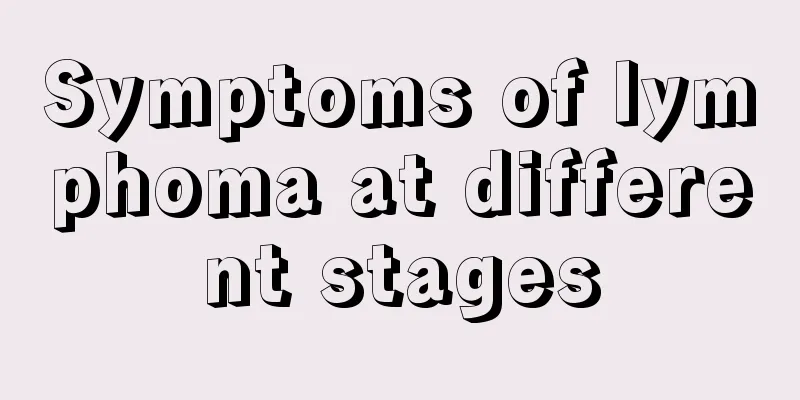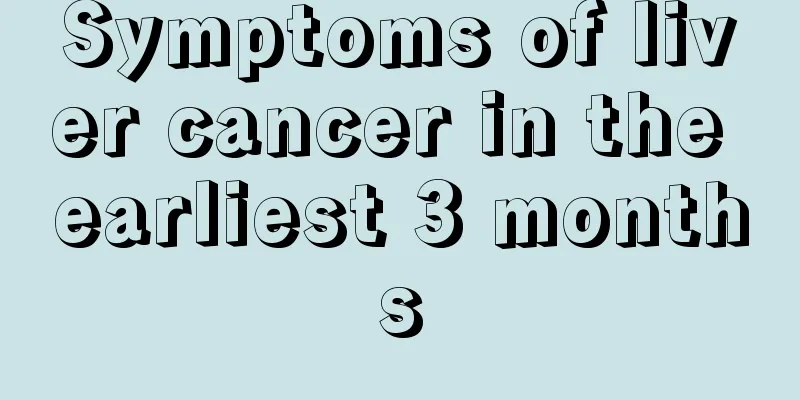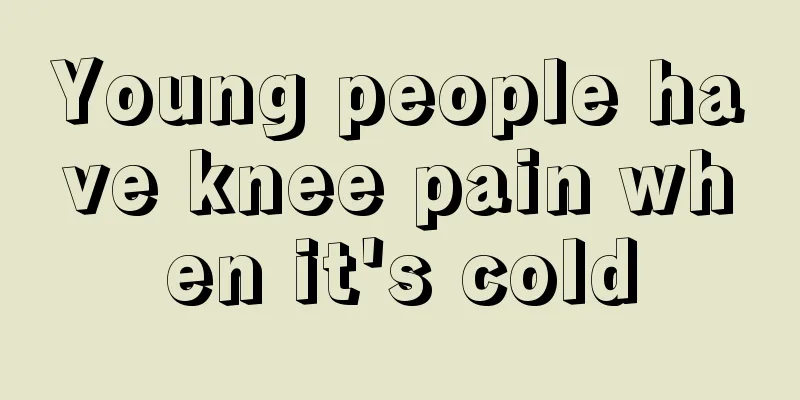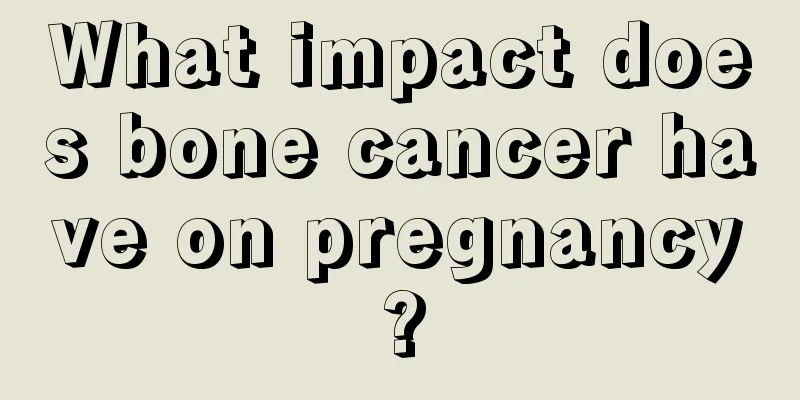Prostate cancer and diet therapy: Eating these foods regularly is good for prostate cancer
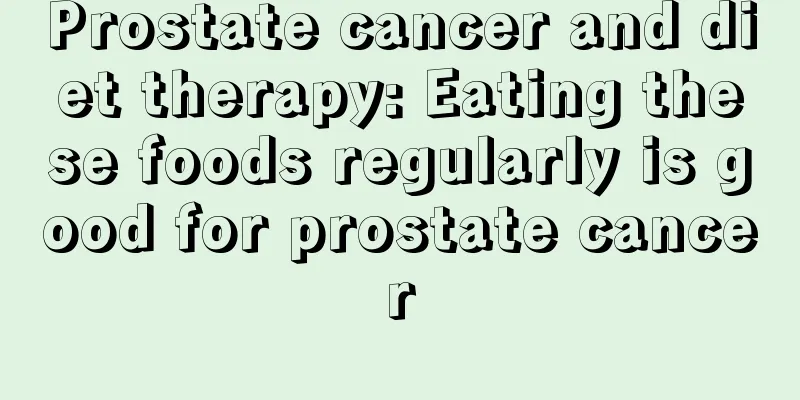
|
Prostate cancer is a common malignant tumor in elderly men. In the United States, the incidence of prostate cancer has surpassed lung cancer and has become the number one tumor that endangers men's health. In my country, with the extension of life expectancy, changes in lifestyle and dietary structure, and the widespread clinical application of prostate-specific antigen (PSA), the incidence of prostate cancer has increased significantly. There are two main areas of diet and prostate cancer: Studies have shown that a high-fat diet increases the incidence of prostate cancer. The incidence of prostate cancer among Chinese and Japanese immigrants in San Francisco is 3 to 7 times that of native people. One important factor is that they eat more fatty foods than native people. The reason is that excessive fat intake will lead to increased cholesterol synthesis, which in turn leads to an increase in the level of androgens synthesized based on cholesterol. An increase in the testosterone ratio in androgens is an important factor in the development of prostate cancer. Representatives of a high-fat diet include: red meat and processed meat. "Red" meat refers to beef and lamb; processed meat includes: sausages, hamburgers, steaks, smoked and pickled meat (including ham and bacon); canned meat. 2. Anti-cancer foods 1. Fruits and vegetables Fruits and vegetables (especially tomatoes) can help reduce the risk of prostate cancer. Studies have found that eating tomatoes and tomato products can also reduce the incidence of prostate cancer. The main component of tomatoes is lycopene, which is a highly unsaturated fatty acid isomer of beta-carotene. It is the most important carotenoid in human plasma and has anti-cancer properties. It is one of the most powerful antioxidants, with an antioxidant capacity that is twice that of beta-carotene and 10 times that of vitamin E. In order to get more lycopene, it is recommended that you choose cooked food or tomato puree. Other foods containing lycopene include: carrots, watermelons, apricots, guava, papayas and pink grapefruits. Eat more cruciferous vegetables. Peas, broccoli and cauliflower are representative vegetables in the cruciferous family. Studies have found that those who eat more cruciferous vegetables can reduce the incidence of prostate cancer. 2. Phytoestrogen Plant Compounds Phytoestrogens in the diet mainly include isoflavones and lignans, which can inhibit the conversion of testosterone into dihydrotestosterone, which has stronger biological activity. Therefore, foods rich in phytoestrogens can reduce the incidence of prostate cancer by reducing the level of circulating androgens. Foods rich in phytoestrogens and with protective effects include beans, nuts, cereals, and berries, such as soybeans, peas, beans, lentils, walnuts, melon seeds, apples, pomegranates, onions, etc. 3. Green tea Green tea contains a variety of antioxidants, the main active ingredients are tea polyphenols and catechin compounds. The antioxidant components of green tea have a significant inhibitory effect on the malignant transformation of cells induced by various carcinogens, including aflatoxin, benzopyrene, cigarette carcinogens, amino acid cleavage products, etc., and help stabilize cell structure and reduce cell damage, while changes in cell structure and cell damage can cause cell cancer. Therefore, in order to prevent prostate cancer, it is recommended to drink 2 to 3 cups of green tea every day, but it must be noted that the tea should not be too strong. 4. Selenium and Vitamin E Supplementing selenium and vitamin E can reduce the risk of prostate cancer. Selenium is an important antioxidant with anti-cancer effects. It can reduce the incidence of prostate cancer by 70%, so it is appropriate to consume more. Selenium in the diet is mainly found in seafood, cereals, mushrooms, nuts and asparagus. Vitamin E is a natural fat-soluble vitamin, and its main function is to play an antioxidant role on the cell membrane. The most active form of vitamin E is alpha-tocopherol, which can reduce the incidence of prostate cancer by 32%. Foods rich in vitamin E include: cereals, nuts, vegetable oils, cod liver oil and green leafy vegetables, such as soybeans, peanuts, walnuts, melon seeds, sesame seeds, walnut kernels, eggs, peanuts, egg yolks, corn and yellow-green vegetables (lettuce, cabbage, etc.). 5. Red wine Resveratrol in red wine has anti-cancer effects. Resveratrol is a plant antibiotic found in natural grape skins and red wine. It has antioxidant, anti-platelet aggregation, anti-atherosclerosis, immune regulation, and estrogen-like growth promotion effects, and is used for tumor prevention. Studies have found that every additional glass of red wine per week can reduce the relative risk of prostate cancer by 6%, so it is recommended to drink red wine in moderation. The diet of prostate cancer patients should be mainly plant protein and plant fat, and they should eat more fruits, vegetables, beans and cereals, and less animal fat and animal protein to lower serum dihydrotestosterone levels and reduce the possibility of prostate cancer. |
<<: What are the specific symptoms of prostate cancer
>>: Is there any cure for advanced prostate cancer?
Recommend
Urinary incontinence when coughing hard
Coughing due to a cold is a very common thing, bu...
Six ways to make it easier to sleep on hot, sweaty nights
Sleeping in summer is uncomfortable. Cooler tempe...
What are the surgical methods for laryngeal cancer
There are many surgical treatments for laryngeal ...
Which virus may cause prostate cancer?
A study published by US researchers shows that a ...
It is necessary for patients to know some examination methods for gallbladder cancer
In recent years, the number of patients with gall...
Can I exercise during bowel cancer?
Rectal cancer is caused by the malignant transfor...
What medicine is effective for shortness of breath
Shortness of breath is a health condition that ma...
Which hospital is best for colorectal cancer surgery
Nowadays, the survival rate of colorectal cancer ...
Kiwi yogurt juice
We eat kiwi fruit directly in our daily life, but...
How to take care of acne?
Acne is a skin problem that everyone will encount...
How to prevent red corners of eyes after canthoplasty?
Redness in the corners of the eyes is a common pr...
The efficacy of drinking water soaked with Ophiopogon japonicus and wolfberry
Drinking water soaked with Ophiopogon japonicus a...
How much does intervention for bladder cancer cost
Bladder cancer not only has a great impact on the...
After thyroid cancer surgery, my neck feels like it's being strangled
After thyroid cancer surgery, the neck feels like...
What is the problem with ear bleeding? It is mainly caused by these 5 reasons
Ear bleeding is not a very common symptom in life...


